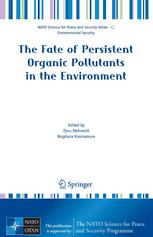

Most ebook files are in PDF format, so you can easily read them using various software such as Foxit Reader or directly on the Google Chrome browser.
Some ebook files are released by publishers in other formats such as .awz, .mobi, .epub, .fb2, etc. You may need to install specific software to read these formats on mobile/PC, such as Calibre.
Please read the tutorial at this link: https://ebookbell.com/faq
We offer FREE conversion to the popular formats you request; however, this may take some time. Therefore, right after payment, please email us, and we will try to provide the service as quickly as possible.
For some exceptional file formats or broken links (if any), please refrain from opening any disputes. Instead, email us first, and we will try to assist within a maximum of 6 hours.
EbookBell Team

0.0
0 reviewsPersistent organic pollutants (POPs) are organic compounds of natural or anthropogenic origin that resist photolytic, chemical and biological degradation. They are characterized by low water solubility and high lipid solubility, resulting in bioaccumulation in fatty tissues of living organisms. These properties of unusual high persistence and semi-volatility, coupled with other characteristics, have resulted in the presence of POPs all over the world, even in regions where they have never been used. With the evidence of long-range transport of these substances to regions, the international community has now, at several occasions called for urgent global actions to reduce and eliminate releases of these chemicals. Many countries have already banned or severely restricted the production and use of the twelve POPs in recent decades. Yet they remain a serious problem around the world. Because these chemicals have the ability to travel long distances from their original sources, relying on national-level action alone is ultimately a futile effort.
This book employs a science-based approach to identify and take action against POPs, and additionally, provides access to technical information on POPs. The book will be an overview of the existing POP monitoring activities and programs.